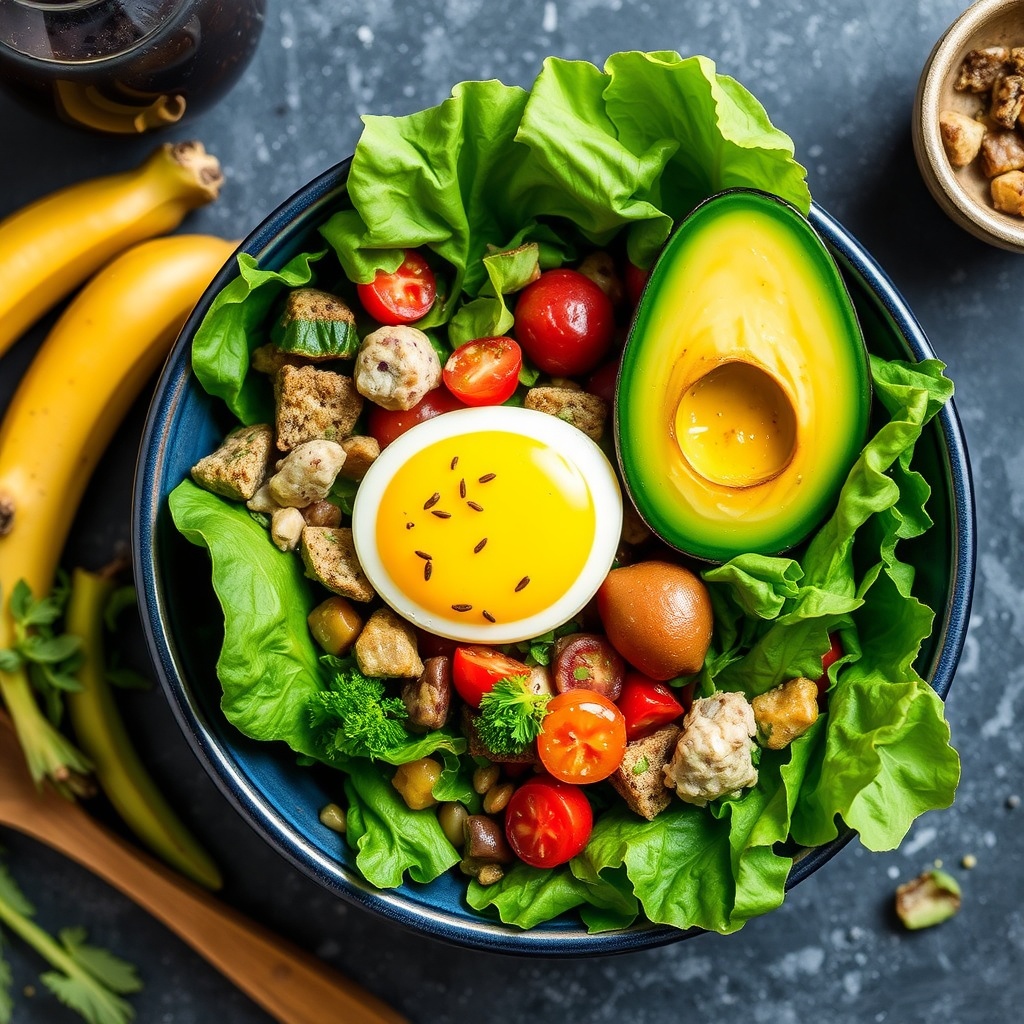The ketogenic diet, commonly referred to as the keto diet, is a high-fat, low-carbohydrate dietary approach that has gained widespread recognition in recent years for its potential health benefits. The primary objective of the ketogenic diet is to induce a metabolic state known as ketosis, in which the body relies on fat as its primary source of energy instead of carbohydrates. This is achieved by significantly reducing carbohydrate intake and increasing fat consumption.
As a result, the body becomes highly efficient at burning fat for energy, leading to potential benefits such as weight loss, enhanced energy levels, and improved mental acuity in many individuals. A typical ketogenic diet consists of a macronutrient breakdown of approximately 70-75% of daily calories derived from fat, 20-25% from protein, and 5-10% from carbohydrates. This means that the majority of foods consumed on a ketogenic diet are rich in healthy fats, moderate in protein, and very low in carbohydrates. Developing a balanced keto food list is crucial for success in achieving and maintaining ketosis.
By adhering to this macronutrient ratio, individuals can effectively shift their metabolism to rely on fat as a primary energy source, potentially leading to weight loss and other health benefits. It is essential to note that the ketogenic diet may not be suitable for everyone, and individuals should consult with a healthcare professional before making any significant changes to their diet.
Key Takeaways
- The ketogenic diet is a high-fat, low-carb diet that can help with weight loss and improve overall health.
- Essential foods for a ketogenic diet include meat, fish, eggs, and high-fat dairy products.
- Protein sources for a ketogenic diet include chicken, turkey, beef, and pork.
- Healthy fats to include in your ketogenic diet are avocado, olive oil, coconut oil, and nuts and seeds.
- Low-carb vegetables for a ketogenic diet include spinach, broccoli, cauliflower, and bell peppers.
Essential Foods for a Ketogenic Diet
Healthy Fats: The Foundation of a Ketogenic Diet
Some of the best foods for a ketogenic diet include avocados, which are rich in healthy monounsaturated fats and low in carbohydrates. Other essential foods for a ketogenic diet include coconut oil, olive oil, and grass-fed butter, all of which are excellent sources of healthy fats.
Protein-Rich Foods for a Balanced Diet
In addition to healthy fats, it’s important to include high-quality sources of protein in a ketogenic diet. This can include grass-fed beef, free-range poultry, and wild-caught seafood. These protein sources are not only low in carbohydrates but also provide essential nutrients such as iron, zinc, and B vitamins. The U.S. Department of Agriculture (USDA) offers nutritional guidelines that emphasize the importance of whole foods, including lean proteins, in maintaining a balanced and nutritious diet.
Low-Carbohydrate Vegetables for a Nutrient-Rich Diet
Finally, it’s important to include low-carbohydrate vegetables such as leafy greens, broccoli, and cauliflower in a ketogenic diet. These vegetables are high in fiber and essential nutrients while being low in carbohydrates, making them an excellent choice for those following a ketogenic diet.
Protein Sources for a Ketogenic Diet
Protein is an essential macronutrient that plays a crucial role in the ketogenic diet. While the focus of the diet is on consuming high amounts of healthy fats, it’s important to include moderate amounts of protein to support muscle growth and repair. When selecting protein sources for a ketogenic diet, it’s important to choose high-quality options that are low in carbohydrates.
Some of the best protein sources for a ketogenic diet include grass-fed beef, which is not only rich in protein but also contains important nutrients such as iron and zinc. In addition to beef, free-range poultry such as chicken and turkey are excellent options for obtaining high-quality protein on a ketogenic diet. These sources of protein are not only low in carbohydrates but also provide essential nutrients such as B vitamins and selenium.
Finally, wild-caught seafood such as salmon, mackerel, and sardines are great choices for obtaining protein on a ketogenic diet. These fatty fish are not only rich in protein but also provide important omega-3 fatty acids, which have been shown to have numerous health benefits.
Healthy Fats to Include in Your Ketogenic Diet
| Food Category | Food Item | Net Carbs per 100g | Fat per 100g | Protein per 100g |
| Meat & Poultry | Beef | 0 | 15g | 26g |
| Seafood | Salmon | 0 | 13g | 20g |
| Dairy | Cheese | 1.3g | 33g | 25g |
| Nuts & Seeds | Almonds | 6g | 49g | 21g |
| Vegetables | Spinach | 1.4g | 0.4g | 2.9g |
Healthy fats are a cornerstone of the ketogenic diet and play a crucial role in supporting overall health and well-being. When following a ketogenic diet, it’s important to focus on consuming high-quality sources of healthy fats that are low in carbohydrates. Some of the best healthy fats to include in a ketogenic diet include avocados, which are not only rich in monounsaturated fats but also provide essential nutrients such as potassium and fiber.
Additionally, coconut oil is an excellent choice for obtaining healthy fats on a ketogenic diet. Other healthy fats to include in a ketogenic diet include olive oil and grass-fed butter, both of which are rich in monounsaturated fats and low in carbohydrates. These fats can be used for cooking or as dressings for salads and vegetables.
Finally, it’s important to include fatty fish such as salmon and mackerel in a ketogenic diet to obtain important omega-3 fatty acids. These healthy fats have been shown to have numerous health benefits, including reducing inflammation and supporting heart health.
Low-Carb Vegetables for a Ketogenic Diet
While the focus of the ketogenic diet is on consuming high amounts of healthy fats and moderate amounts of protein, it’s also important to include low-carbohydrate vegetables to obtain essential nutrients and fiber. Some of the best low-carbohydrate vegetables to include in a ketogenic diet include leafy greens such as spinach, kale, and Swiss chard. These vegetables are not only low in carbohydrates but also provide important nutrients such as vitamin K, vitamin A, and folate.
In addition to leafy greens, cruciferous vegetables such as broccoli, cauliflower, and Brussels sprouts are excellent choices for obtaining low-carbohydrate vegetables on a ketogenic diet. These vegetables are not only high in fiber but also provide important nutrients such as vitamin C and vitamin K. Finally, it’s important to include other low-carbohydrate vegetables such as zucchini, bell peppers, and asparagus in a ketogenic diet.
Snacks and Treats for a Ketogenic Diet
While following a ketogenic diet, it’s important to have options for snacks and treats that are low in carbohydrates and high in healthy fats. Some of the best snacks for a ketogenic diet include nuts and seeds such as almonds, walnuts, and chia seeds. These snacks are not only high in healthy fats but also provide important nutrients such as magnesium and fiber.
Additionally, it’s important to include high-fat dairy products such as cheese and Greek yogurt in a ketogenic diet. Other snacks and treats for a ketogenic diet can include dark chocolate with a high cocoa content, which is low in carbohydrates and provides important antioxidants. Additionally, homemade keto-friendly desserts such as avocado, chocolate mousse, or coconut fat bombs can be great options for satisfying sweet cravings while staying within the parameters of the ketogenic diet.
Tips for Success on a Ketogenic Diet
While the ketogenic diet can be incredibly effective for weight loss and overall health, it’s important to follow some tips for success to ensure that you are getting the most out of the diet. One tip for success on a ketogenic diet is to focus on consuming whole, unprocessed foods that are high in healthy fats and low in carbohydrates. This can help ensure that you are obtaining essential nutrients while staying within the parameters of the diet.
Another tip for success on a ketogenic diet is to stay hydrated by drinking plenty of water throughout the day. This can help support overall health and well-being while on the diet. Additionally, it’s important to monitor your intake of electrolytes such as sodium, potassium, and magnesium while following a ketogenic diet.
This can help prevent potential side effects such as the “keto flu” that some individuals experience when first starting the diet. In conclusion, the ketogenic diet can be an effective way to support weight loss and overall health by shifting the body’s metabolism to burn fat for fuel instead of carbohydrates. By focusing on consuming high amounts of healthy fats, moderate amounts of protein, and very low amounts of carbohydrates, individuals can potentially experience numerous health benefits while following the ketogenic diet.
It’s important to focus on consuming essential foods such as avocados, coconut oil, grass-fed beef, and low-carbohydrate vegetables while following the diet. Additionally, including snacks and treats that are low in carbohydrates and high in healthy fats can help individuals stay satisfied while following the parameters of the ketogenic diet. By following these tips for success on a ketogenic diet, individuals can potentially experience improved energy levels, better mental clarity, and weight loss while following this popular dietary approach.
FAQs
What are the best foods for a ketogenic diet?
The best foods for a ketogenic diet include high-fat foods such as avocados, nuts and seeds, fatty fish, and healthy oils. Additionally, low-carbohydrate vegetables, high-quality proteins, and dairy products can also be included in a ketogenic diet.
What foods should be avoided on a ketogenic diet?
Foods that are high in carbohydrates, such as grains, sugars, starchy vegetables, and most fruits, should be avoided on a ketogenic diet. Processed and high-sugar foods should also be limited or eliminated.
How does a ketogenic diet work?
A ketogenic diet works by drastically reducing carbohydrate intake, which forces the body to use fat as its primary source of energy. This process leads to the production of ketones, which are used for fuel in the absence of carbohydrates.
Are there any health benefits to a ketogenic diet?
Some potential health benefits of a ketogenic diet include weight loss, improved blood sugar control, and increased mental clarity. It may also have benefits for certain neurological conditions and metabolic disorders.
Is a ketogenic diet suitable for everyone?
A ketogenic diet may not be suitable for everyone, especially those with certain medical conditions or dietary restrictions. It is important to consult with a healthcare professional before starting a ketogenic diet, especially if you have any underlying health concerns.





